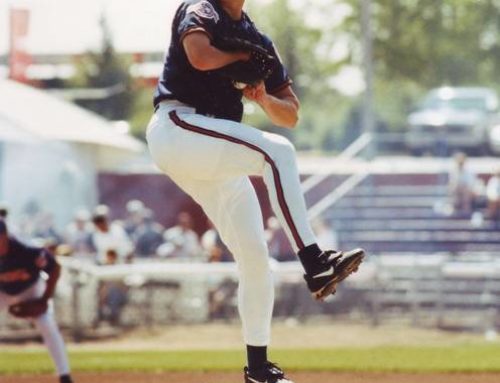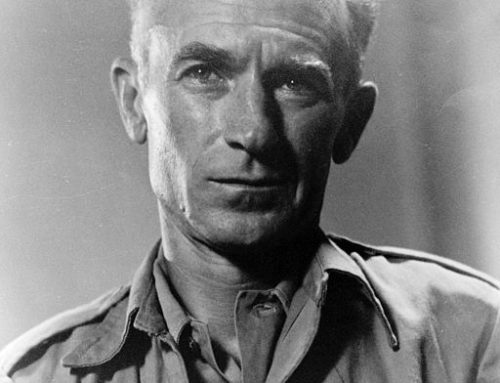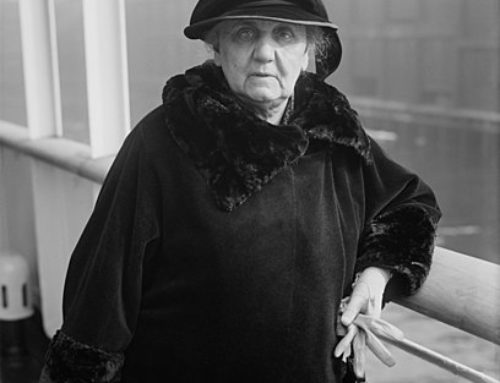When the Nazis came for the communists,
I remained silent;
I was not a communist.
When they locked up the social democrats,
I remained silent;
I was not a social democrat.
When they came for the trade unionists,
I did not speak out;
I was not a trade unionist.
When they came for the Jews,
I remained silent;
I wasn’t a Jew.
When they came for me,
there was no one left to speak out
–Martin Niemoller
The documentary, Mario’s Story, highlights the incredible efforts of Bob Long senior counsel from the prestigious legal firm Latham & Watkins and Sister Janet Harris, who served as chaplain for Central Juvenile Hall in Los Angeles on behalf of Mario Rocha to secure his freedom. Rocha served nine years of a life sentence before a California appeals court overturned Rocha’s conviction on the grounds that he did not receive a fair trial because of flawed legal representation. The court ruled that Rocha’s conviction violated the Sixth Amendment of the United States Constitution. Under this amendment the accused shall have the right to a speedy trial by an impartial jury, to have compulsory process for obtaining witnesses in his favor, and to have the Assistance of Counsel for his defense.
The Supreme Court has ruled that the principal rights guaranteed by this amendment are so fundamental and important that they are also protected in state proceedings by the Fourteenth Amendment‘s Due Process Clause.
Mario’s Story highlights the challenge confronting our legal system of assuring “equal justice for all.” Poor Defendants especially from immigrant backgrounds have to rely in general on Public Defenders or unsophisticated poorly compensated counsel. In reality, frequently this representation does not secure for the defendants their full rights under the Sixth Amendment.
Fortunately, strangers spoke out over nine long years to get Rocha justice. Sister Harris from the beginning believed so ardently in his innocence that she convinced the prestigious legal firm Latham & Watkins to work pro bono.
Latham & Watkins beat the odds to obtain a reversal of Rocha’s conviction. That is, less than 1% of appeals for retrial are granted. The major points raised in Rocha’s defense were his representation by incompetent counsel at the original trial. Latham & Watkins made the following points:
-
Counsel failed to raise objections when the prosecution mistakenly identified which hand Rocha would have likely used to shoot the victims
-
Counsel failed to get any eye witnesses to rebut prosecution witness. That is, many people at the murder scene would have readily testified that Rocha was not physically near the murder scene.
-
Counsel failed to object to prosecutions’ assertion that Rocha was a gang member when Rocha had a totally unblemished background.
Rocha kept his mental balance during his long incarceration by developing first rate writing skills. The documentary captured his remarkable kindness, sense of humor, genuine religiosity, and humaneness throughout his imprisonment. His family, friends and parish priests never abandoned him.
In conclusion, Pastor Niemoller who served almost a decade in Nazi concentration camps for his defense of Nazi opponents would have approved that the Sixth Amendment remains a beacon of hope.
The Sixth Amendment of the United States Constitution sets forth rights related to criminal prosecutions in federal courts. The Supreme Court has ruled that the principal rights guaranteed by this amendment are so fundamental and important that they are also protected in state proceedings by the Fourteenth Amendment‘s Due Process Clause.
Rocha was a smart teenager from East Los Angeles who did well in school, Long said, but he found himself at the wrong place at the wrong time. In February 1996, he was at a party where there was a fight, and a 17-year-old was killed and another person was shot in the hand. Accounts of what happened were confused, but one witness claimed Rocha had a gun. He was tried with two gang members, and in 1998, all three were convicted.
His case might have been forgotten but for Sister Janet Harris, who served as chaplain for Central Juvenile Hall in Los Angeles and ran a writing program for incarcerated youth. She believed in Rocha’s innocence, and through her efforts, attorneys with the high-powered Los Angeles firm Latham & Watkins agreed to take the case pro bono.
Long, who served as lead counsel, said the firm signed on after Rocha passed a polygraph and a review of the case record showed his original attorney failed to pursue evidence that his client was innocent.
“I knew you didn’t make a commitment to represent someone in a habeas case casually. It’s a very significant undertaking,” said Long, whose career was primarily in business law, not criminal law.
Filmmakers Werner and Koch took an interest, and the lawyers, despite initial concerns about confidentiality, gave them behind-the-scenes access. But the appeal took longer than anyone could have anticipated, with local judges twice taking a year or more to issue rulings that let the process move forward.
Finally, in December 2005, a California appeals court overturned Rocha’s conviction on the grounds that he did not receive a fair trial because of flawed legal representation. The case was the last that Long argued before retiring from active practice.
Rocha was released from prison in the summer of 2006. The Los Angeles County district attorney’s office refiled charges but hasn’t taken steps to bring the case to trial, Long said.
“We’re kind of in a stare-down contest,” he said.
Today, Rocha is working at the University of Southern California and hoping to enroll in college once his legal problems are behind him.
“He writes so well, and he speaks from the heart,” Long said. “He has a keen eye for justice issues. While he was incarcerated, he always spoke of hope and his desire to see justice done. He never expressed bitterness. He’s just a very inspirational guy.”
Long said Rocha’s case isn’t an indictment of the U.S. justice system, but it shows how the system doesn’t work if an attorney doesn’t do his job well.
“The people in the DA’s office for the County of Los Angeles know how to try a case and get a conviction,” he said. “Unless you are represented by strong, capable counsel — especially in a case with gang overtones — you are going to lose.”
BLOOMINGTON, Ind. — Mario Rocha spent 10 years in California prisons after weak legal representation caused him to be convicted of murder for an incident that took place when he was 16.
He is now a free man, thanks to the efforts of a Roman Catholic nun and a legal team headed by a graduate of the Indiana University School of Law–Bloomington.
Bob Long
The attorney, Bob Long, will return to IU on Wednesday, April 9, to introduce and show Mario’s Story, a documentary film that tells the story of Rocha’s fight for justice. Directed by Jeff Werner and Susan Koch, Mario’s Story won the Audience Award for Best Documentary Feature at the 2006 Los Angeles Film Festival.
“It tells a great story about the importance of making sure the system works right,” said Long, who earned an undergraduate degree from IU Bloomington in 1968 and a law degree in 1971. “And it tells an important story for law students — that what you do makes a difference.”
The film will be shown at 4:30 p.m. in the Moot Court Room of the Law School, 211 S. Indiana Ave. The event, sponsored by the Law School, is free and open to the public.
Rocha was a smart teenager from East Los Angeles who did well in school, Long said, but he found himself at the wrong place at the wrong time. In February 1996, he was at a party where there was a fight, and a 17-year-old was killed and another person was shot in the hand. Accounts of what happened were confused, but one witness claimed Rocha had a gun. He was tried with two gang members, and in 1998, all three were convicted.
His case might have been forgotten but for Sister Janet Harris, who served as chaplain for Central Juvenile Hall in Los Angeles and ran a writing program for incarcerated youth. She believed in Rocha’s innocence, and through her efforts, attorneys with the high-powered Los Angeles firm Latham & Watkins agreed to take the case pro bono.
Long, who served as lead counsel, said the firm signed on after Rocha passed a polygraph and a review of the case record showed his original attorney failed to pursue evidence that his client was innocent.
“I knew you didn’t make a commitment to represent someone in a habeas case casually. It’s a very significant undertaking,” said Long, whose career was primarily in business law, not criminal law.
Filmmakers Werner and Koch took an interest, and the lawyers, despite initial concerns about confidentiality, gave them behind-the-scenes access. But the appeal took longer than anyone could have anticipated, with local judges twice taking a year or more to issue rulings that let the process move forward.
Finally, in December 2005, a California appeals court overturned Rocha’s conviction on the grounds that he did not receive a fair trial because of flawed legal representation. The case was the last that Long argued before retiring from active practice.
Rocha was released from prison in the summer of 2006. The Los Angeles County district attorney’s office refiled charges but hasn’t taken steps to bring the case to trial, Long said.
“We’re kind of in a stare-down contest,” he said.
Today, Rocha is working at the University of Southern California and hoping to enroll in college once his legal problems are behind him.
“He writes so well, and he speaks from the heart,” Long said. “He has a keen eye for justice issues. While he was incarcerated, he always spoke of hope and his desire to see justice done. He never expressed bitterness. He’s just a very inspirational guy.”
Long said Rocha’s case isn’t an indictment of the U.S. justice system, but it shows how the system doesn’t work if an attorney doesn’t do his job well.
“The people in the DA’s office for the County of Los Angeles know how to try a case and get a conviction,” he said. “Unless you are represented by strong, capable counsel — especially in a case with gang overtones — you are going to lose.”



